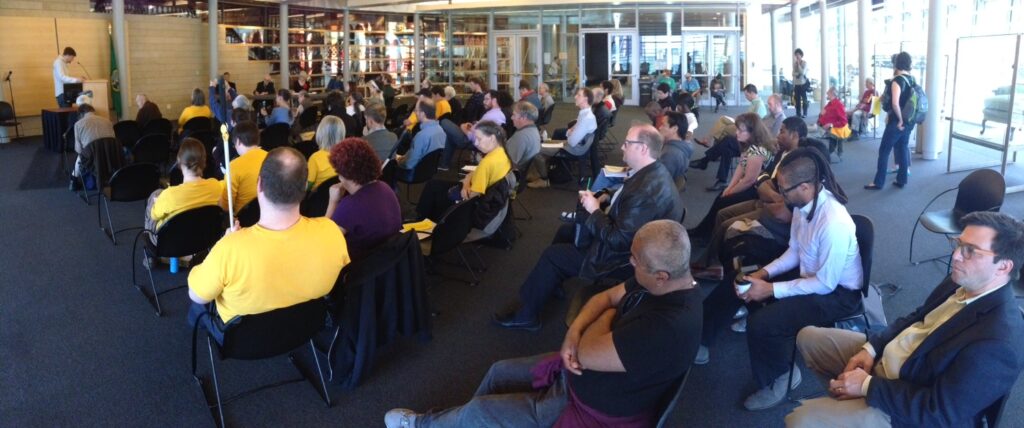

On Monday, June 29, the new Our City Coalition will hold a rally, candidate speak-out and sleep-out starting at 5:30 PM at Hat ‘n Boots (Oxbow) Park in Georgetown, 6430 Corson Ave S.
You’re invited! RSVP on Facebook here.
Over a dozen candidates for city and county council will be there to speak about the crisis of homelessness and what must be done to end it.
In July 2005, with great fanfare, King County launched a “Ten Year Plan” to end homelessness. At the end of June 2015, those ten years come to a close. So, how are we doing?
The January 2015 One Night Count showed 3,772 homeless people were sleeping on the street without adequate shelter, an increase of 20% over last year. Including those in shelters and transitional housing, over 10,000 people in King County are known to be homeless. This is unacceptable. We can do better.
With this event we will be marking the end of the Ten Year Plan – and the beginning of real solutions to homelessness, solutions that start with homeless people and community allies, organizing, advocating, and helping ourselves and each other.
The rally and speak-out will begin at 6:30 PM, preceded by a community meal at 5:30 PM, and followed by an overnight sleep-out. We invite supporters and candidates to spend the night! Mats and blankets will be provided.
The following morning, Tuesday, June 30, the Our City Coalition (formerly Occupy CEHKC) will proceed to march to the Governing Board Meeting of the Committee to End Homelessness, 8:30 AM, 6737 Corson Ave S.














